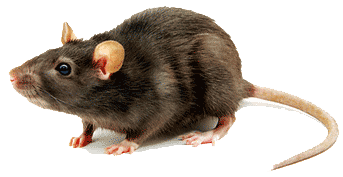
Don’t Let Rodents Rule Your Roost: Why Control is Crucial
Rodents. Just the word can send shivers down the spines of homeowners and business owners alike. These unwelcome guests aren’t just a nuisance; they pose significant threats to your health, property, and peace of mind. Ignoring a rodent problem is a costly mistake, which is why proactive and effective rodent control is absolutely essential.
At Bed Bug Texas Termite and Pest Control, we understand the unique challenges that rodent infestations present in our Texas environment. We’re here to help you understand the importance of rodent control in Katy TX, and how our expert services can safeguard your home or business.
The Unseen Threat: Types of Rodents in Texas
Texas is home to a variety of rodent species, each with its own habits and potential for causing trouble. Some of the most common culprits include:
- House Mouse (Mus musculus): Small, agile, and adaptable, house mice can squeeze through incredibly tiny openings. They are often found indoors, nesting in walls, ceilings, and storage areas.
- Norway Rat (Rattus norvegicus): Also known as the brown rat or sewer rat, Norway rats are larger and more aggressive. They are often found in basements, crawl spaces, and outdoors around buildings.
- Roof Rat (Rattus rattus): Also called the black rat or ship rat, roof rats are excellent climbers and prefer to nest in attics, trees, and dense vegetation.
- Pocket Gophers (various species): While primarily outdoor pests, pocket gophers can cause extensive damage to lawns and gardens with their burrowing activities.
- Squirrels (various species): Although often seen as more “outdoorsy,” squirrels can enter attics and walls, causing damage with their chewing and nesting.
More Than Just Annoyance: The Dangers Rodents Bring
Rodents are far more than just a creepy sight. They carry a host of dangers that can impact your health and finances:
Health Risks: Rodents are known carriers of numerous diseases that can be transmitted to humans and pets through bites, droppings, urine, or contact with contaminated surfaces. Some of these diseases include:
- Hantavirus: A severe respiratory illness transmitted through the inhalation of airborne particles from infected rodent urine, droppings, or saliva.
- Salmonellosis: A bacterial infection causing diarrhea, fever, and abdominal cramps, often spread through contaminated food or surfaces.
- Leptospirosis: A bacterial disease transmitted through contact with infected animal urine, potentially leading to kidney damage, meningitis, or liver failure.
- Rat-Bite Fever: A bacterial infection caused by bites or scratches from infected rats, resulting in fever, rash, and joint pain.
- Plague: While less common in Texas, fleas that have fed on infected rodents can transmit this serious bacterial disease.
Property Damage: Rodents have a constant need to gnaw to keep their teeth from growing too long. This can lead to significant damage to your property:
- Electrical Wiring: Chewing on wires can create fire hazards and power outages, leading to costly repairs.
- Plumbing: Gnawing on pipes can cause leaks and water damage.
- Insulation: Rodents can nest in insulation, tearing it apart and reducing its effectiveness, leading to higher energy bills.
- Structural Damage: Burrowing can weaken foundations, and chewing on wood can compromise the structural integrity of your building.
- Contamination: Droppings and urine can contaminate food storage areas and other surfaces, requiring extensive cleaning and potential disposal of affected items.
Financial Costs: The cumulative effect of property damage, potential health issues, and the cost of ineffective DIY solutions can be substantial. Investing in professional rodent control is often more cost-effective in the long run.
Proactive Protection: Preventing Rodent Infestations
eal with rodents is to prevent them from entering your property in the first place. Here are some key preventative measures:
- Seal Entry Points: Inspect your home or business for cracks and holes in foundations, walls, around pipes, and under doors. Seal these openings with caulk, steel wool, or other appropriate materials.
- Maintain Landscaping: Trim trees and shrubs away from your building to prevent rodents from using them as access routes. Keep grass cut short and remove debris piles.
- Proper Food Storage: Store food in airtight containers and promptly clean up spills. Avoid leaving pet food or water out overnight.
- Secure Trash: Use trash cans with tight-fitting lids and ensure they are regularly emptied.
- Eliminate Water Sources: Fix any leaky pipes or faucets and ensure proper drainage around your property.
- Regular Cleaning: Keep your home or business clean and clutter-free to reduce potential nesting sites.
Effective Solutions: How Bed Bug Texas Termite and Pest Control Can Help
If you suspect or have confirmed a rodent infestation, it’s crucial to act quickly and effectively. Bed Bug Texas Termite and Pest Control offers comprehensive rodent control services tailored to the specific needs of your Texas property. Our experienced technicians will:
- Thorough Inspection: We will conduct a detailed inspection to identify the type of rodent, the extent of the infestation, and potential entry points.
- Customized Treatment Plans: Based on our findings, we will develop a targeted treatment plan that may include:
- Trapping: Using various types of traps to safely and effectively capture rodents.
- Baiting: Strategically placing rodenticides in secure areas inaccessible to children and pets.
- Exclusion: Sealing entry points to prevent future infestations.
- Sanitation Advice: Providing recommendations for cleaning and disinfecting affected areas.
- Ongoing Monitoring and Prevention: We can offer ongoing services to monitor for future activity and implement preventative measures to keep your property rodent-free.
Don’t let rodents take over your Texas home or business. Contact Bed Bug Texas Termite and Pest Control today for a professional assessment and effective rat pest control services. Protect your health, your property, and your peace of mind.
